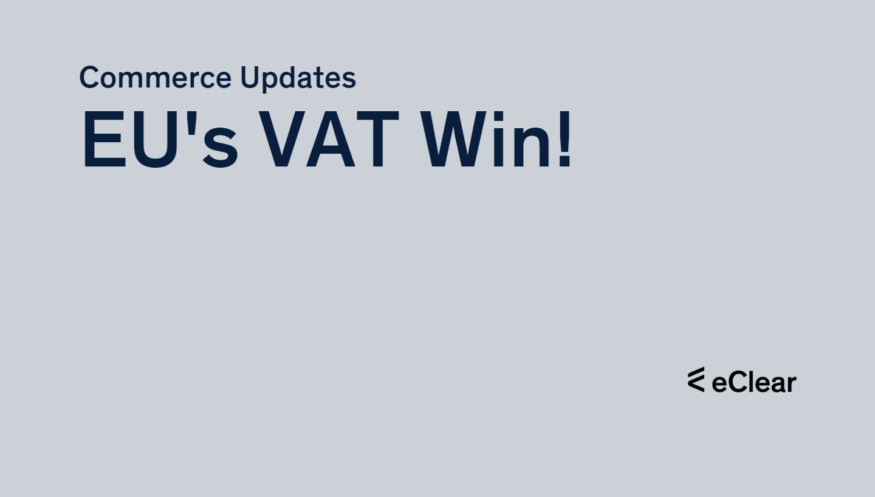The EU’s new VAT rules for e-commerce have proven successful, with Member States collecting €20 billion in 2022. The ‘One-Stop-Shop’ (OSS) and ‘Import One-Stop-Shop’ (Import OSS) systems, which simplify VAT declarations for businesses, were key to this success. The OSS portal alone generated over €17 billion from online sales, while €2.5 billion came from imports of e-commerce goods. The new systems led to a 26% increase in VAT revenues compared to 2021, with about 130,000 companies registering. The Commission plans to expand the OSS system to more merchants and extend the use of the import OSS.
EU’s Digital Markets Act: Seven Tech Titans Comply

Three July 2023, marked the deadline for major tech platforms to declare their compliance with the European Union’s (EU) Digital Markets Act (DMA), a new regulation aimed at curbing the power of ‘gatekeeper’ companies. Alphabet, Amazon, Apple, ByteDance, Meta, Microsoft, and Samsung have all confirmed that they meet the DMA’s thresholds.
With their significant market size and influence, these companies have an annual turnover in Europe of at least €7.5 billion in the last three financial years or a fair market value of at least €75 billion in the last financial year. They also operate in at least three member states. They have served over 45 million monthly active end users and over 10,000 yearly active business users in the EU on several core platform services, such as search engines, social networking services, and operating systems.
The EU will review these submissions and formally designate the ‘gatekeepers’ for specific platform services by 6 September. Following this designation, these companies will have six months to comply with the DMA rules.
Under the DMA, ‘gatekeepers’ will be prohibited from locking users into their ecosystem, deciding which apps must be pre-installed on devices, and favouring their products and services. Additionally, their messaging apps will be required to interoperate with others.
The DMA is expected to provide consumers with more service options, the ability to switch providers more quickly, and access to better prices and higher-quality services. It will also prevent innovative companies from being barred from reaching new customers.
The DMA, Digital Services Act, Data Act, and AI Act are part of Europe’s comprehensive effort to restructure its digital space to protect EU citizens better and foster innovation for EU startups and companies.
EU AI Act Criticized for Threatening Tech Sovereignty

European economic stakeholders have expressed concerns over the proposed EU Artificial Intelligence (AI) Act, warning it could harm Europe’s competitiveness and technological sovereignty. In an open letter, they argue that the heavy regulation of generative AI could lead to high compliance costs and liability risks, potentially driving away companies and investors. While acknowledging the need for regulation, they criticize the proposed legislation as bureaucratic and suggest a risk-based approach implemented by a dedicated EU regulatory body. They also stress the importance of a transatlantic framework and urge a revision of the AI Act to balance competitiveness and societal protection. Among the signatories of the letter are Rodolphe Ardant (Founder & CEO of Spendesk), Sébastien Bazin (Chairperson & CEO of Accor), Roland Busch (Chairperson & CEO of Siemens), Bernard Charlès (Chairperson & CEO of Dassault Systèmes) and Christel Heydemann (CEO of Orange).
Cyprus Eyes New 3% VAT Rate Amid EU Tax Changes

Cyprus is set to introduce a new 3% VAT rate on a range of products and services, including books, orthopaedic devices, and specific performances, in response to the EU’s decision to allow more flexibility in tax rates, reports tungsten-network.com. Additionally, a zero VAT rate will be introduced for specific disability aids. These changes, pending approval from the Cypriot Council of Ministers, will be supported and incorporated by Kofax, a compliant territory in Cyprus, into its e-invoicing solution if confirmed.
Dutch Govt Retains 8% Late Payment Interest Rate

The Dutch government has decided to keep the 8% interest rate for late payments of corporate tax and withholding tax, providing relief to businesses, reports orbitax.com. The rate was set to increase to 10.5% from 1 March 2023. Still, it will remain at 8% until changes to the calculation method are implemented on 1 January 2024. However, interest rates for other taxes, including income tax, inheritance tax, and payroll tax, will rise from 4% to 6% from 1 July 2023. This move is part of a broader strategy to effectively manage tax payments and refunds.
€4M Seized in Major EU Customs Fraud Case

The European Public Prosecutor’s Office (EPPO) in Bologna, Italy, has concluded a large-scale customs fraud case, confiscating €4 million and securing a plea bargain from the primary defendant. The fraud involved smuggling textiles from China into the EU and transporting the goods to Italy by shell companies. The Italian Financial Police seized over 8.7 million linear meters of fabrics and more than €300,000 in cash, with the total confiscation amounting to €4 million. The EPPO is responsible for handling crimes against the EU’s fiscal interests.







